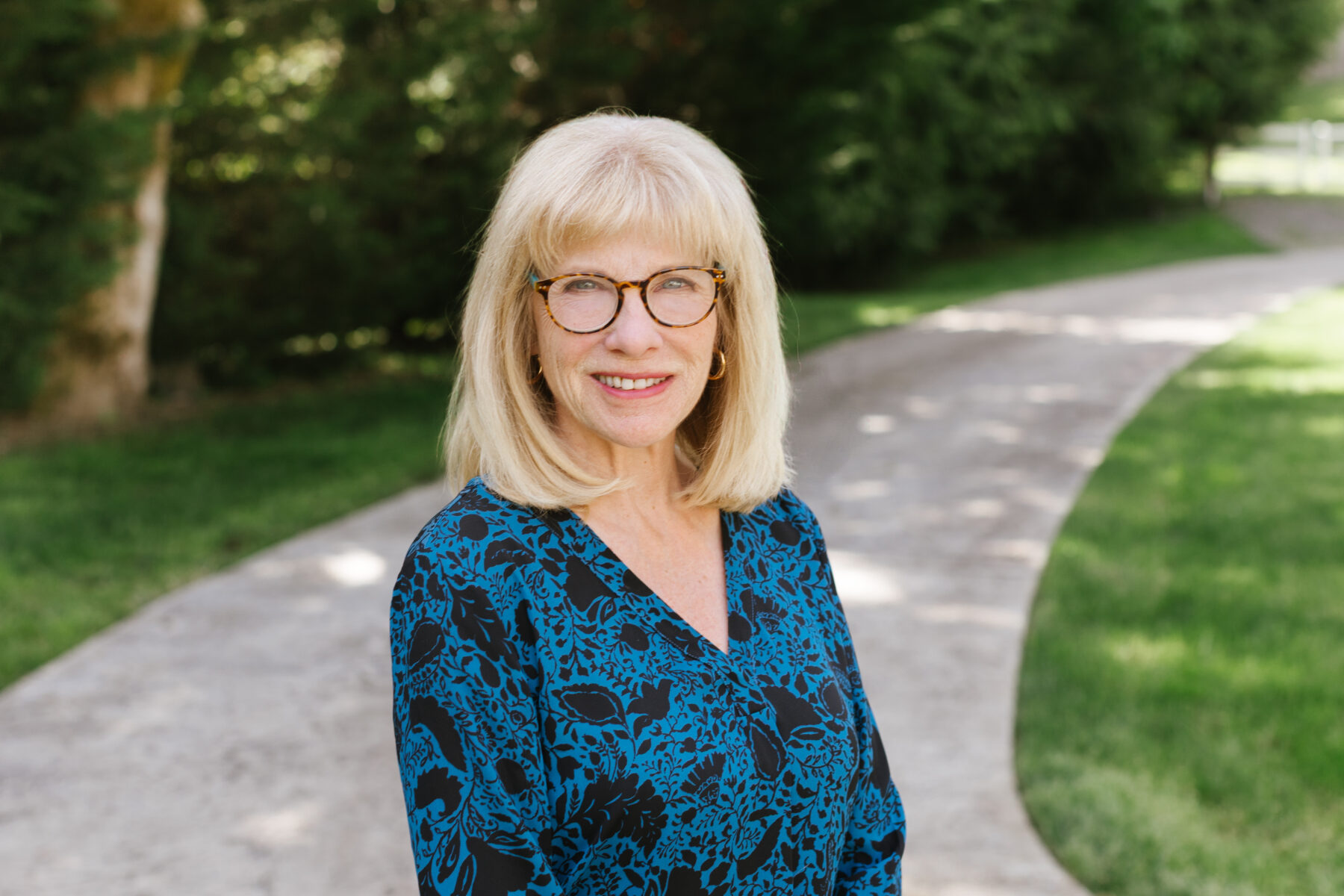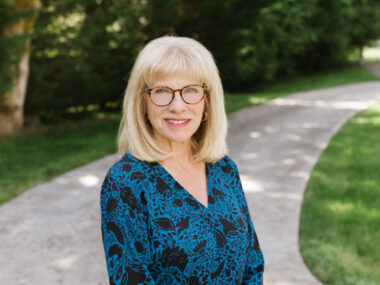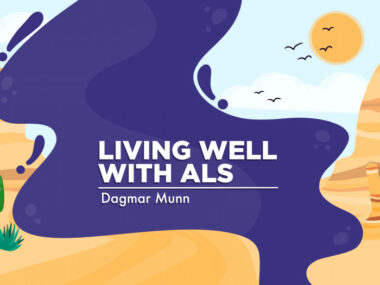Guest Voice: My ALS speech issues have resulted in unexpected gifts
With bulbar symptoms, I've had to find new ways to communicate
Written by |

ALS has begun to affect Nancy Muirhead’s speech, but she appreciates how she no longer takes communication abilities for granted. (Courtesy of Nancy Muirhead)
Until recently, my language skills and speech were best buddies. They were happily and symbiotically entwined, each supporting the other with comfort and ease.
Language — the software system — was the one with all the good ideas, reacting to the environment in milliseconds like a gleeful toddler and formulating just the right response. Speech — driven by the hardware, including the muscles of the face, mouth, and tongue — was right on language’s tail, executing language’s bidding while moving as fast as a runner winning a 100-meter sprint. Together, this team helped me build a complex, multilayered, and satisfying life.
Until they broke up.
Now that I’m struggling with bulbar-onset ALS, my intact language skills are stomping heavy feet in frustration, shaking fists at the newly demoralized and impotent speech, and cursing it with as much power as I have available:
“You’ve said only a fraction of what we need to say!”
“Stop mumbling, no one is going to understand us!”
“You sound drunk, for God’s sake!”
Oh, how things have changed.
You can’t keep an extrovert quiet
My earliest memory is sitting at the kitchen table with my mother, swinging my legs happily and chatting about anything that came into my 3-year-old mind. For me — always curious about everyone — talking was the high-speed train connecting my brain with the brains of others.
My favorite thing to do was to ask other people questions, including strangers standing in line behind us at the grocery store or the man fixing our car, enjoying all the interesting and often unexpected answers.
Fast forward many years, and no one was surprised when I expressed my desire to be a psychologist. I couldn’t believe my luck that such a job even existed. You mean I could turn my insatiable curiosity about people into a career where I could connect with others, help them overcome challenges, and make the world a better place one person at a time? Sign me up.
Decades later, it was still my dream job until the disease presented itself as a rapid decline in my ability to speak. The term “dysarthria” is commonly used to explain these aspects of the diagnosis.
Unfortunately, this word is hard to say with ALS, so these days, when I’m trying to explain the nature of my disability to someone new (usually someone who is trying to understand what the hell I’m trying to say), I point to my mouth and rasp out my own term for it: “SDD,” or speech deficit disorder. Everyone gets it.
Now living in a spiky gray zone between having some minimal ability to converse and zero speech, I’ve started using a cellphone application to convey common phrases to my husband throughout the day. I know I’ll inevitably need alternative communication equipment. In the meantime, though, this app allows me to change my voice depending on the message, and it provides both of us with some much-needed humor:
“What’s on your schedule this morning, honey?” The phone app purrs to my husband in a seductive voice.
“Let’s play Wordle!” The mechanized voice is that of an older man.
“Where’s my martini?” Now it’s Betty White.
Although I often dream at night about my speech being magically returned to me, much to my surprise, bulbar ALS has afforded me two unexpected gifts.
First, because of the time and effort now required to express myself, there are more spaces between my thoughts and the words, creating gaps between the intent of my communication and the actual execution. That’s a good thing. It has forced me to be more mindful of what I want to say, word by word, and how to actually say it. My communication with others has become more targeted and meaningful.
Also, I no longer take my expressive skills for granted. Speaking was something I never thought about. It was always available, and I just did it, like breathing or smiling. It was a part of life that was virtually invisible to me. No longer.
I now acutely notice when anyone speaks; I listen carefully to what they say and how they say it. I view connecting with others as the treasure and privilege it is, and I use whatever means I have at my disposal to express myself fully, whether it’s a scribble on a sticky note, nonverbal gestures, a meaningful eye gaze, or mechanized methods of expression.
It’s said that the act of communication helps to build the structure of our own unique reality. But guess what? There are many unexpected facets to one’s reality, and it can be built and rebuilt in novel ways throughout your lifetime, sometimes because you want to and, yes, sometimes because you have to.
To submit your own Guest Voice for publication on ALS News Today, please email your idea to our columns manager at [email protected] with the following included in the subject line: “Guest Voice: ALS News Today.”
Note: ALS News Today is strictly a news and information website about the disease. It does not provide medical advice, diagnosis, or treatment. This content is not intended to be a substitute for professional medical advice, diagnosis, or treatment. Always seek the advice of your physician or other qualified health provider with any questions you may have regarding a medical condition. Never disregard professional medical advice or delay in seeking it because of something you have read on this website. The opinions expressed in this column are not those of ALS News Today or its parent company, Bionews, and are intended to spark discussion about issues pertaining to ALS.







Johnny5
Our lives keep going forward like a starship in a wormhole. We adapt to the changes as best we can and hope that someone hits that bingo button and finds a cure. Nice article, Nancy.